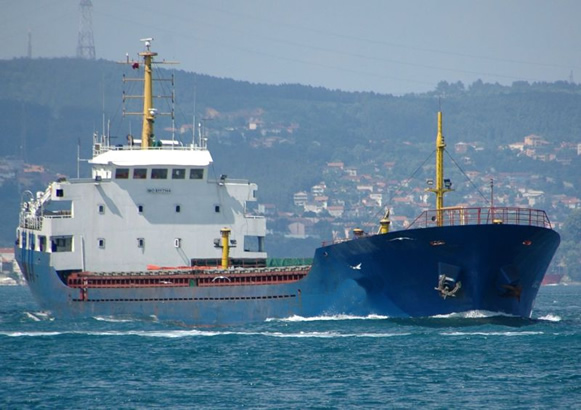Automate ports to cut cargo delays, stakeholders urge govt
The Lagos Chamber of Commerce and Industry (LCCI) has renewed calls for sweeping reforms in Nigeria’s port operations, emphasizing the urgent need for full automation of cargo clearance procedures and the redeployment of functional scanners across major seaports.
In a strongly worded statement, LCCI President, Gabriel Idahosa, expressed concern over Nigeria’s declining competitiveness in the maritime and logistics sector, particularly when compared to regional peers such as Ghana and South Africa.
“The average cargo dwell time at Apapa Port is 26 days—far exceeding the five- to seven-day regional average,” Idahosa said.
“These inefficiencies are primarily due to continued manual processes, limited deployment of scanning technology, and an excessive human interface that hampers smooth cargo clearance.”
Idahosa warned that systemic inefficiencies are eroding investor confidence and pushing global shipping lines to reroute cargo away from Nigeria to better-performing regional ports.
Recent reports have highlighted a growing trend of international shipping companies—most notably from the United States and Russia—diverting operations to Togo’s Lomé Port, citing Nigeria’s high port costs, bureaucratic delays, and poor cargo clearance efficiency.
“This should serve as a wake-up call for stakeholders in the Nigerian maritime sector,” Idahosa cautioned.
“We must implement the National Single Window Project immediately, fully automate cargo clearance processes, and redeploy mobile and digital scanners at all major ports.”
Concerns Over Port Tariff Hike and Customs Bottlenecks
The LCCI also condemned the recent 15 per cent port tariff increase announced by the Nigerian Ports Authority (NPA), warning that it could further burden freight operators already contending with inflation, forex volatility, and other macroeconomic pressures.
“While infrastructure improvement is important, the timing of this tariff hike is insensitive to current economic realities,” said Idahosa.
“Operators are struggling to survive under rising costs and unstable policy environments.”
The Chamber also called attention to the persistent delays caused by frequent Customs queries, stating that such discretionary checks often serve as avenues for abuse and extortion.
“These unnecessary delays have real economic consequences. We urge deeper collaboration with the Nigeria Customs Service to streamline processes and eliminate bottlenecks,” Idahosa added.
Encouraging Progress: Falling Transport Costs and Expanded Rail Cargo
Despite its criticisms, the LCCI acknowledged some recent improvements in Nigeria’s port logistics landscape. Idahosa noted that transportation costs from the ports have declined by up to 60 per cent in recent months.
“Just a few months ago, moving goods from Apapa to Ikeja could cost as much as ₦1 million. Today, that cost has dropped significantly, providing welcome relief for businesses and shippers,” he noted.
He also praised the Nigerian Railway Corporation (NRC) for its expanding cargo operations from Apapa Port to Lagos and Ibadan, saying that increased rail freight is a step in the right direction.
“Rail haulage reduces road congestion, enhances logistics efficiency, and lowers operating costs. We welcome this development and encourage its wider adoption,” he said.
Call for Stakeholder Collaboration and Policy Urgency
The LCCI reaffirmed its commitment to engaging with key stakeholders—including the Federal Ministry of Transportation, the Nigeria Customs Service, and the Nigerian Ports Authority—to drive reforms that enhance transparency, efficiency, and global competitiveness in the maritime sector.
“Without swift action to modernize our port systems, Nigeria risks further marginalization from global logistics and trade networks,” Idahosa warned.
“We are ready to work with government agencies to address these issues. The time to act is now.”
Importers Association Joins the Reform Call
Adding its voice to the reform push, the Importers Association of Nigeria (IMAN) echoed LCCI’s stance, saying that the implementation of the National Single Window (NSW) could revolutionize shipment clearance and boost national revenue.
IMAN President, Kingsley Chikezie, highlighted how the NSW project promises to drastically reduce clearance times—from weeks or months to just a few hours.
“By registering in the NSW, we can expect faster turnover and faster delivery of shipments. What used to take months could be done within three hours,” Chikezie said.
“This will improve trade flows and significantly increase government revenue from import duties.”
Chikezie emphasized that port reforms would empower importers, reduce business overhead, and create a more reliable, transparent trade environment.
Conclusion
As global trade dynamics shift and regional ports become more competitive, Nigeria’s maritime industry faces mounting pressure to modernize. From automation to infrastructure and regulatory clarity, stakeholders agree on one point: urgent action is needed to save Nigeria’s ports from global irrelevance.
The Lagos Chamber of Commerce and Industry, supported by industry voices like IMAN, is calling not only for reform—but for results.














Post Comment